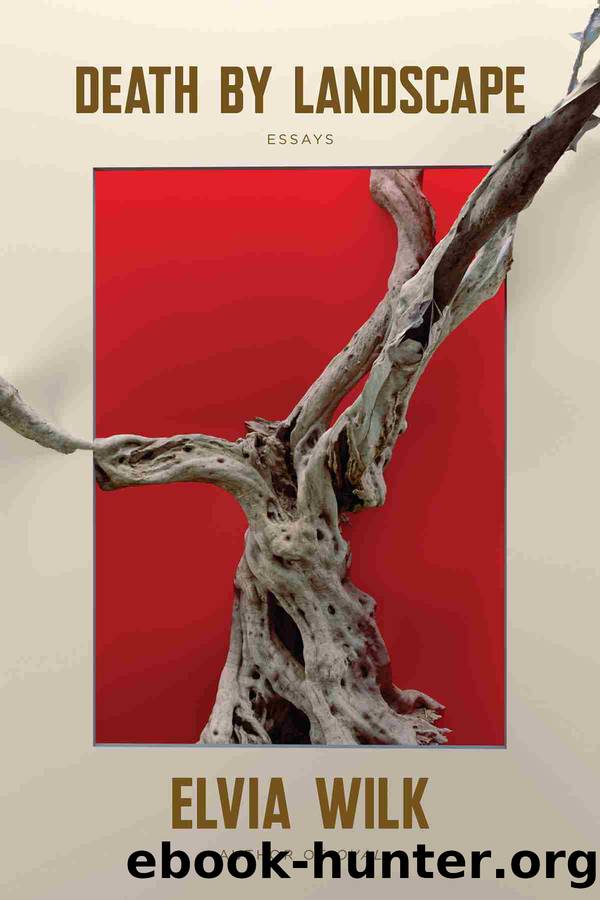Death by Landscape by Elvia Wilk

Author:Elvia Wilk
Language: eng
Format: epub
ISBN: 9781593767167
Publisher: Catapult
Published: 2021-04-02T00:00:00+00:00
âSo itâs simple, then,â I said. âNo mystery. You donât love me because you love Lack.â
âYes.â
âBut he doesnât love you back.â
âYes.â
âYou tried then. You offered yourself.â
No answer. But when I turned from the sink she stared at me hollowly, then nodded.
At moments like this Philip canât seem to help calling Lack âhe,â even though he knows gendering the hole is ridiculous (and if it had to be gendered, the default probably wouldnât be masculine). His anguish is compounded by the fact that he has no opponent, male or otherwise. Literally nobody stands in the way of his lover. Nobody threatens his failing relationship. There is no person to envy; neither can he explain Aliceâs infatuation under the rubric of any known fetish like object sexuality, the romantic attraction to inanimate objects. Lack is no more object than person. Philip says: âThe problem was that my usual approachâanthropologyâwould give blessing to Aliceâs anthropomorphization of Lack. I wanted to prove Alice wrong, to show Lack to be a dead thing, a mistake, a cosmic pothole.â Yet again, the notion that Alice has abandoned him for a cosmic pothole only makes him feel worse.
Lack is a joke with infinite punch lines. Lack can signify whatever you want it to mean: mouth, pussy, asshole, queerness, blackness, god, yonic void, âwhat women want,â trauma, autonomy, rejection. These answers are all too obvious to be satisfyingâand should you think youâve found a uniquely satisfying interpretive twist or Freudian spin, the characters have inevitably beat you to the punch. They offer all sorts of readings themselves. âLack is the Other,â insists one woman to Philip at a party. A physicist colleague of Aliceâs implies that Lack represents âa third gender.â In one scene, Philip tries to make Lack mean everything by meaning nothing, saying, âLack is the inevitable: the virtually empty sign. The sign that means everything it is possible to mean, to any reader.â
Philip is speaking both on and off the page here. Philip is chasing Alice, Alice is chasing Lack, and you, the reader, are chasing the meaning of it all. With each attempt to read deeper you glance off the fact of the matter, which is that Lack is exactly what it looks like, namely a black holeâand an assault on everyoneâs interpretive abilities. You desire to uncover the hidden message of Lack, and the story refuses to serve one to you, drawing you into the dynamic. Desire triangulates between the two characters due to the (empty) obstacle at the center of their relationship; desire triangulates on the level of story, too.
How does this story speak to the structure of plots about love and to love itself? Anne Carson goes so far as to propose the triangleââlover, beloved, and that which comes between themââas the basis for all erotic desire, as well as the basis for the structure of novels about love. This is not necessarily the rom-com love triangle where, say, a third person offers temptation; it is a triangle where the third
Download
This site does not store any files on its server. We only index and link to content provided by other sites. Please contact the content providers to delete copyright contents if any and email us, we'll remove relevant links or contents immediately.
| Books & Reading | Comparative Literature |
| Criticism & Theory | Genres & Styles |
| Movements & Periods | Reference |
| Regional & Cultural | Women Authors |
4 3 2 1: A Novel by Paul Auster(12395)
The handmaid's tale by Margaret Atwood(7769)
Giovanni's Room by James Baldwin(7348)
Big Magic: Creative Living Beyond Fear by Elizabeth Gilbert(5778)
Asking the Right Questions: A Guide to Critical Thinking by M. Neil Browne & Stuart M. Keeley(5778)
Ego Is the Enemy by Ryan Holiday(5452)
The Body: A Guide for Occupants by Bill Bryson(5099)
On Writing A Memoir of the Craft by Stephen King(4947)
Ken Follett - World without end by Ken Follett(4737)
Adulting by Kelly Williams Brown(4578)
Bluets by Maggie Nelson(4561)
Eat That Frog! by Brian Tracy(4543)
Guilty Pleasures by Laurell K Hamilton(4451)
The Poetry of Pablo Neruda by Pablo Neruda(4112)
Alive: The Story of the Andes Survivors by Piers Paul Read(4034)
White Noise - A Novel by Don DeLillo(4012)
Fingerprints of the Gods by Graham Hancock(4005)
The Book of Joy by Dalai Lama(3988)
The Bookshop by Penelope Fitzgerald(3854)
